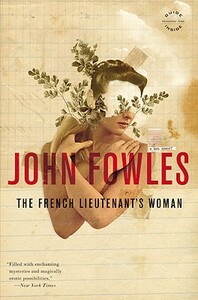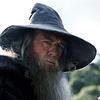Take a photo of a barcode or cover
adventurous
challenging
emotional
reflective
medium-paced
Plot or Character Driven:
A mix
Strong character development:
Complicated
Loveable characters:
Complicated
Diverse cast of characters:
Complicated
Flaws of characters a main focus:
Yes
adventurous
challenging
emotional
informative
mysterious
reflective
tense
slow-paced
Plot or Character Driven:
A mix
Strong character development:
No
Loveable characters:
Yes
Diverse cast of characters:
No
Flaws of characters a main focus:
Complicated
emotional
funny
informative
inspiring
mysterious
reflective
medium-paced
Plot or Character Driven:
A mix
Strong character development:
Yes
Loveable characters:
Yes
Diverse cast of characters:
Yes
Flaws of characters a main focus:
Yes
The first half of this novel struck me as a more forward version of “The End of the Affair.” A man in a strict society is engaged to the perfect woman produced by aforesaid society but his heart is stolen by a fallen woman who stands for everything society disdains but who appeals to us as readers because of her beauty and independence. Same reason she appeals to him.
But anyway. This book does proceed very much like “Affair” except that it does it in a much more critical manner. It seems as if all through the novel, Fowles is taking a scientific look at just what made the Victorian Era click and what was wrong with it. Or what was right with it in some cases. Sometimes the scientific aspect got to be just a little much for me. I couldn’t tell what was Charles talking and what was the author and what was Dr. Grogan.
Fowles makes no bones about how hard it is to control characters if you want them to be truly realistic and often complains about how much trouble he has writing about Charles and Sarah. He even goes so far as to insert himself as a character in the book so he can examine his characters “in person.” This brings him to the conclusion that he cannot tell what would really happen with his characters, so he provides three separate endings for the novel. And if you ever read this book, I’d be interested in hearing your opinion on which would be most likely to be the truest ending.
But anyway. This book does proceed very much like “Affair” except that it does it in a much more critical manner. It seems as if all through the novel, Fowles is taking a scientific look at just what made the Victorian Era click and what was wrong with it. Or what was right with it in some cases. Sometimes the scientific aspect got to be just a little much for me. I couldn’t tell what was Charles talking and what was the author and what was Dr. Grogan.
Fowles makes no bones about how hard it is to control characters if you want them to be truly realistic and often complains about how much trouble he has writing about Charles and Sarah. He even goes so far as to insert himself as a character in the book so he can examine his characters “in person.” This brings him to the conclusion that he cannot tell what would really happen with his characters, so he provides three separate endings for the novel. And if you ever read this book, I’d be interested in hearing your opinion on which would be most likely to be the truest ending.
12/30/2017: I've just finished re-listening to the splendid audiobook version of "The French Lieutenant's Woman" - and I still love it.
This isn't really a proper novel, which lets you immerse yourself in the Victorian love story between the protagonist (Charles, 32, British, upper class) and his romantic interest (Sarah Woodruff, lower class, former governess, compromised by a French lieutenant). It's a story interlaced with explanations and essays about life in the Victorian age and with musings on writing and storytelling. It's post-modern in style, and unashamedly so, but it's quite a lot of fun to read. Or listen to, as the audiobook is quite lovely, as well.
This isn't really a proper novel, which lets you immerse yourself in the Victorian love story between the protagonist (Charles, 32, British, upper class) and his romantic interest (Sarah Woodruff, lower class, former governess, compromised by a French lieutenant). It's a story interlaced with explanations and essays about life in the Victorian age and with musings on writing and storytelling. It's post-modern in style, and unashamedly so, but it's quite a lot of fun to read. Or listen to, as the audiobook is quite lovely, as well.
dark
medium-paced
Plot or Character Driven:
Character
Strong character development:
Yes
Loveable characters:
No
Diverse cast of characters:
No
Flaws of characters a main focus:
Yes
“It is only when our characters and events begin to disobey us that they begin to live.”
And so they did! Fowles releases his characters and tells an epic story that begins with a woman, Sarah, seemingly trapped in melancholic mourning for a lover who abandoned her. Charles, a gentleman of the nobility, takes pity on her and becomes her secret confidant. As their bond grows stronger, Charles finds himself increasingly pulling away from Ernestina, his fiance. Secrets are revealed and Sarah's sanity is brought into question. Damned if he does and damned if he doesn't, Charles risks it all for love.
This book was an incredibly wild ride. It seemed a very typical Victorian story at first, though sometimes unexpected interrupted by a very intrusive narrator that discusses contemporary movements and Victorian ethics. At some point, I really did feel that the characters somehow existed outside the field of influence of the author and I was shocked to find it, because that is simply impossible. I am not sure how he has done that but it is very impressive. It is like the story breathes and leads a life of its own. He is just there to tell it as it happens.
The three endings are also quite a feat, the first one being typically Victorian in its convential "happy-marriage" narrative. But the last two are so heartbreaking, each in their own way so painful. I thought the foreshadowing of Charles playing with Sarah's (the prostitute) baby was wonderfully done, as he does it in the exact same way but the truth then becomes painfully clear. The sadness he felt over that child not having a father falls on him, because his child also did not have him to look to. There is a slight promise there of something better, which I liked better than the final ending. It really touched me and I'll remember this book for a long time from now. It reminded me a little bit of Fingersmith by Sarah Waters, which makes sense as they are both Neo-Victorian. The writing for this one, though, is tougher to get into but so immensely rewarding once you have invested in it.
And so they did! Fowles releases his characters and tells an epic story that begins with a woman, Sarah, seemingly trapped in melancholic mourning for a lover who abandoned her. Charles, a gentleman of the nobility, takes pity on her and becomes her secret confidant. As their bond grows stronger, Charles finds himself increasingly pulling away from Ernestina, his fiance. Secrets are revealed and Sarah's sanity is brought into question. Damned if he does and damned if he doesn't, Charles risks it all for love.
This book was an incredibly wild ride. It seemed a very typical Victorian story at first, though sometimes unexpected interrupted by a very intrusive narrator that discusses contemporary movements and Victorian ethics. At some point, I really did feel that the characters somehow existed outside the field of influence of the author and I was shocked to find it, because that is simply impossible. I am not sure how he has done that but it is very impressive. It is like the story breathes and leads a life of its own. He is just there to tell it as it happens.
The three endings are also quite a feat, the first one being typically Victorian in its convential "happy-marriage" narrative. But the last two are so heartbreaking, each in their own way so painful. I thought the foreshadowing of Charles playing with Sarah's (the prostitute) baby was wonderfully done, as he does it in the exact same way but the truth then becomes painfully clear. The sadness he felt over that child not having a father falls on him, because his child also did not have him to look to. There is a slight promise there of something better, which I liked better than the final ending. It really touched me and I'll remember this book for a long time from now. It reminded me a little bit of Fingersmith by Sarah Waters, which makes sense as they are both Neo-Victorian. The writing for this one, though, is tougher to get into but so immensely rewarding once you have invested in it.
adventurous
challenging
funny
informative
inspiring
mysterious
reflective
medium-paced
Plot or Character Driven:
Character
Strong character development:
Yes
Loveable characters:
No
Diverse cast of characters:
No
Flaws of characters a main focus:
Yes





